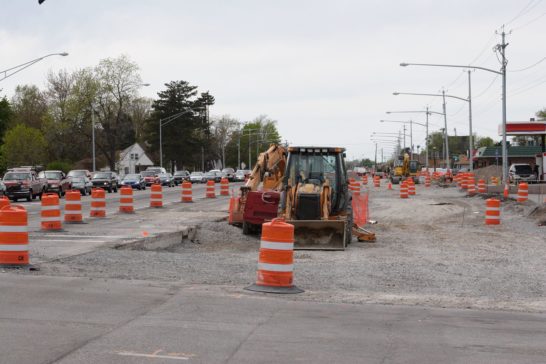Civil Engineering Firms Breathe New Life into Severely Damaged Roads
When Hurricane Katrina submerged more than 80% of New Orleans underwater, it took days for the flooding to recede. Millions of gallons of water remained stagnant in residential areas, making streets virtually impassable and homes uninhabitable. For road work alone, the Federal Emergency Management Agency (FEMA) agreed to grant the city $2 billion in funding. As rehabilitation is a lengthy process that involves careful planning and implementation, local authorities wasted no time and decided to get the roads fixed.
How Bad Were the Roads?
Due to the massive floodings in recent years, the streets of New Orleans have become weaker and more brittle. Severe water damage along with poor drainage will lead to large road and sidewalk cracks and the dreaded potholes. According to reports, New Orleans’ post-Katrina road repair efforts cost 10 times more than in previous decades. During that time, over 40% of city roads were rated as very poor or in failing condition, and about 25% were poor. Disappointingly, a mere 14% of NOLA streets fared as excellent or good at the least.
With these devastating road conditions, authorities estimate spending around $350 million per year to make them drivable once more. In terms of time, such projects may take anywhere between 10 to 30 years, with additional costs for regular maintenance.
Consequences for the Public
For locals who don’t frequent the streets, driving in New Orleans can be a challenge, rush hour or not. With these pothole-ridden streets, and with constant road closures due to repair jobs, the average commute time from home to work has grown from the normal 23 minutes to up to 30 to 34 minutes. When streets, sidewalks and driveways are not maintained to standard, they can pose risks not only for motorists, but pedestrians as well.
Ongoing Local Efforts
From the FEMA funds alone, around $375 million had been allotted for projects spearheaded by the New Orleans Sewerage and Water Board (SW&B). With the help of experts from local civil engineering firms, the SW&B had gone full-force in repairing broken pipes, installing newly-improved sewage lines and ensuring that roads are adequately drained as the rains come in.
Structural and civil engineering consultants were also called upon for intensive planning to get the city streets back in order. Starting with minor roads in residential communities, efforts were underway for patching, paving and overlaying. Some roads that have been assessed as very poor needed to have a full reconstruction, which included an overhaul of all pipelines, curbs, sidewalks, and pavements. Indeed, it is a budget-heavy and time-consuming journey, but the city of New Orleans is confident that the project heads can meet their targets to bring the roads to tip top shape.
Moreover, the public is also enjoined to watch out for road work updates through the city website or via social media. This makes communities more aware of upcoming road closures and detours, and allows them to plan ahead to avoid any inconvenience as they travel around town.
Beyond Road Repairs
In line with the infrastructural challenges that the city has been facing, the work of civil engineering firms is never done. Apart from sewerage work and road repairs, these groups have also been tapped to inspect and manage fortification efforts in the city’s major pump stations and power plants. Working with federal authorities, these firms ensure that these public facilities are in optimum condition to be ready for any hurricane or heavy flooding.
It can be difficult to imagine the successful completion of massive city rehab projects without the knowledge and expertise of structural and civil engineers, project managers, contractors, and more. Truly, these professionals create a strong foundation that supports the city and allows it to stand tall in the face of adversity.
Sources:
Local Issues Everyone Deals with Living in New Orleans, LA, Thrillist.com
The Pothole Facts, Pothole.info
How Bad Are New Orleans Streets? TheAdvocate.com












